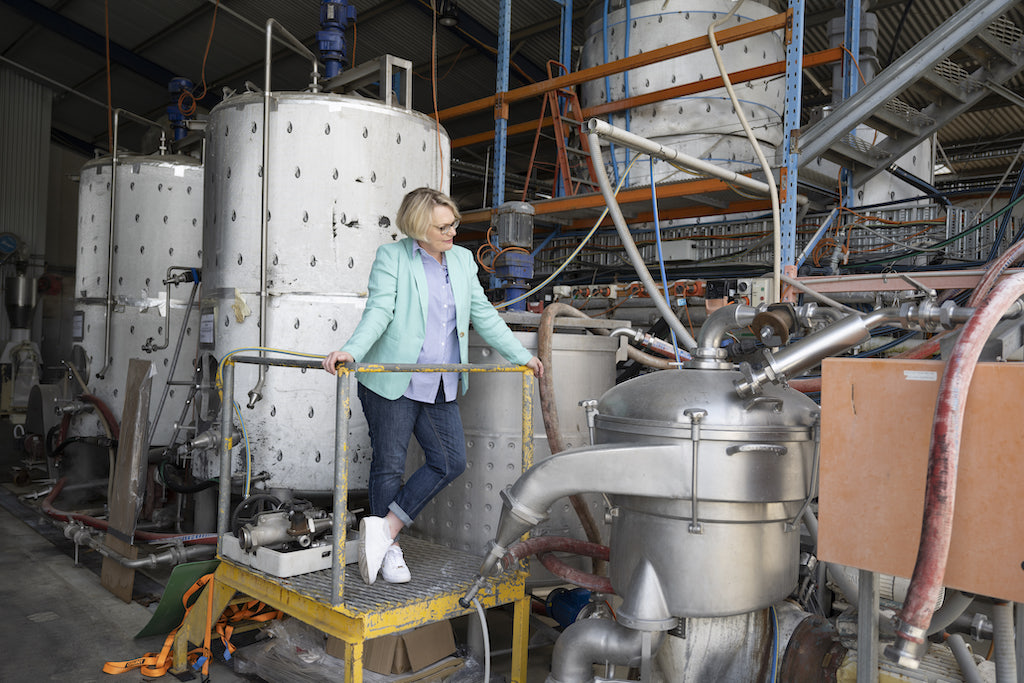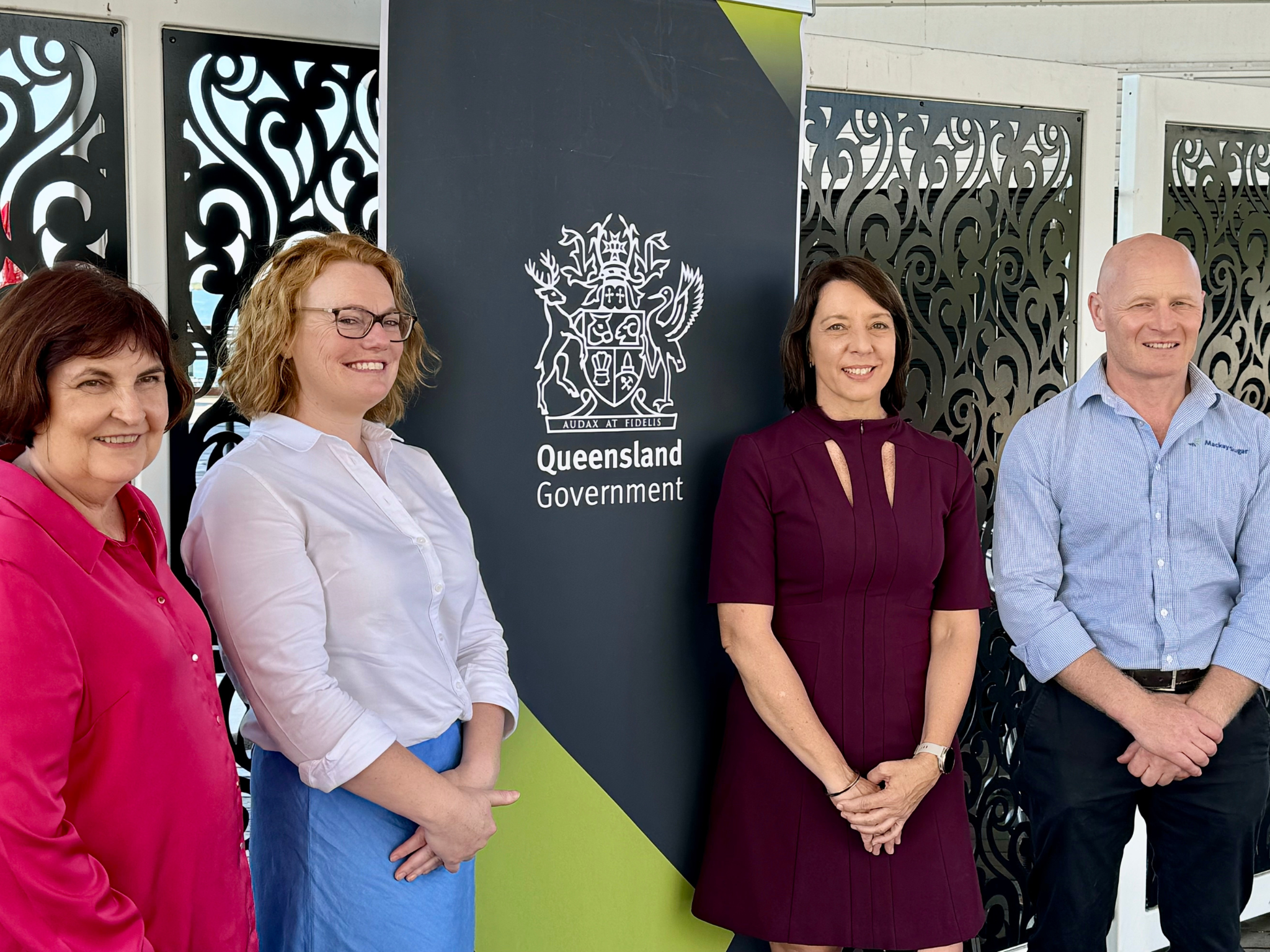Queensland Govt Backs Cauldron Ferm’s Efforts to Build APAC’s Largest Precision Fermentation Facility
4 Mins Read
Australian fermentation specialist Cauldron Ferm has received financial support from the Queensland government to build a first-of-its-kind precision fermentation contract manufacturing plant.
The state of Queensland is exhibiting its support for alternative proteins, backing the establishment of Asia-Pacific’s “largest end-to-end contract manufacturer for precision-fermented bioproducts” in the town of Mackay.
Cauldron Ferm – based in Orange, New South Wales – is building the facility to apply its novel hyper-fermentation tech on a commercial scale. It uses a continuous fermentation process that lowers net unit costs by up to 50%, and provides 20% more output with 45% less capex.
To support the construction of the Cauldron Bio-fab plant, the Queensland government is providing financial assistance and facilitation through its Industry Partnership Program, which aligns with its strategy to develop new industries that would be in demand as the world decarbonises.
“Cauldron’s project will help establish Mackay as a leading biocommodity hub, providing a precision fermentation commercialisation pathway that builds on successive Queensland and Australian government investments in QUT’s Mackay Renewable Biocommodities Pilot Plant by offering increased capacity for companies ready to move to the next stage of production,” Cauldron Ferm co-founder and CEO Michele Stansfield told Green Queen.
Mackay plant first of several facilities planned

Cauldron Ferm’s fermentation tech is built on 35 years of R&D from Agritechnology, where Stansfield worked for over a decade, and whose precision fermentation IP it bought last year. The tech involves a novel bioreactor design and proprietary growth medium formulation, which improve the economics of large-scale fermentation production by five times compared to the current industry standard.
The company currently has a demo facility in New South Wales, with a fermentation capacity of 25,000 litres (which has been backed by the federal government). It now plans to expand operations into the Cauldron Bio-fab plant, which it has previously indicated will have a 500,000-litre capacity.
The Mackay factory will produce inputs for food, nutrition, materials, beauty, personal care, chemicals, and biofuels, with an annual output of over 1,000 tonnes. And it will not be the last of its kind – Cauldron Ferm is planning to develop a global network of industrial facilities in multiple markets.
“The Mackay Biohub aims to draw on the existing agricultural strengths of the Greater Whitsunday region and contribute to a sustainable and export-oriented industrial biotechnology and bioproducts sector, that attracts investment and creates high-value and knowledge-intensive regional jobs,” says Stanfield.
“This is supported by the new Mackay State Development area and the Regional Transformation Strategy for the Greater Whitsunday region,” she adds.
“With the support of the Queensland Government, Cauldron is a step closer towards building a first-of-a-kind facility that will produce ingredients used in fibre, fuel, feed and food products at commercial scale,” says Grace Grace, Queensland’s state development and infrastructure minister.
Government support vital for precision fermentation

Cauldron Ferm is the only business approved to manufacture precision-fermented protein ingredients at the 10,000-litre scale in Australia. In February, it received a DIR200 licence for the Pichia pastoris strain from the Department of Health’s Office of the Gene Technology Regulator (OGTR), following a thorough assessment at the company’s demo facility.
“OGTR found there was negligible risk based on the Risk Assessment and Risk Management Plan carried out in accordance with OGTR’s Risk Analysis Framework,” describes Stansfield. “And as a result, the OGTR have deemed Cauldron’s proprietary hyper-fermentation process to be safe for the environment, staff and community.”
She adds: “Working with the OGTR through this process was a great learning for our team to implement the protocols necessary at this early stage, so we’re prepared to scale as we onboard new clients and expand production.”
Looking forward, the business is fundraising for its Series B round (having already secured AU$20M to date), which is witnessing “strong interest in the market”, according to co-founder and CFO David Kestenbaum.
“In addition to our breakthrough technology platform, we have an innovative business model that drives high EBITDA margins and leverages non-dilutive capital and partnerships to build out manufacturing capacity with VC-style returns,” he says. “This unique value proposition is attracting interest from deep tech, biotech, climate tech, and food-tech funds that have been looking for a commercially viable solution for next-gen biomanufacturing.”
Biomanufacturing can boost national resilience, according to the firm, while providing benefits to food security, national decarbonisation targets, domestic supply chains, and employment via localised production. “Emerging industries, such as precision fermentation, create economic diversification opportunities for regional economies and support new, high-value jobs,” says Stanfield.
“However, government support is essential to derisk early mover proponents,” she adds. “These early projects demonstrate the credibility of the industry including the regulatory and supply chain paths, paving the way for additional proponents and investors.”
A report by Cellular Agriculture Australia presented several recommendations for lawmakers to support precision fermentation. This included the inclusion of cellular agriculture and food as key opportunities in the Future Made in Australia initiative, and the rollout of flexible incentive packages – like government-funded debt and below-market input prices – to promote investment in precision fermentation facilities.



